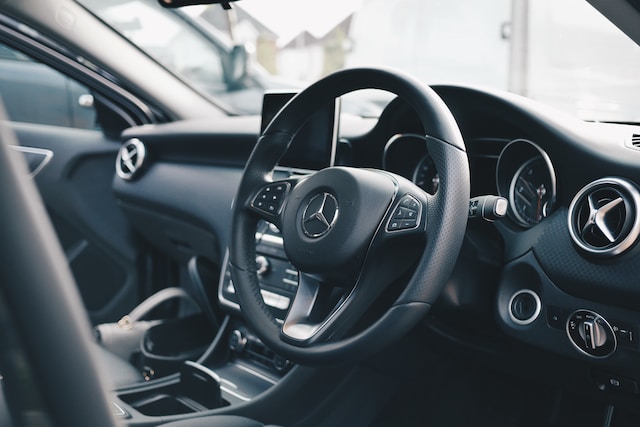Regardless of what make or model of car you drive, the fact remains it needs to be properly maintained
Proper maintenance not only keeps your vehicle running smoothly, but it also keeps you safe. However, we all know how busy life gets, and how the little things that seem unimportant get ignored. Until they become big things that cost you money.
In light of this, we’ve put together 25 tips that you can check off your list to keep your car on the road.
1. Read the owner’s manual
Yes, it’s a lot of information, but it will provide insight into what you need to do to maintain your car properly. Most manufacturers will provide a maintenance checklist in the manual, but if they don’t, write or print one out and slot it into the front of the book. If you don’t have the owner’s manual, you can research your car to find an online version.
2. Understand the warning lights
Most cars’ warning lights will light up on the dash if the car is experiencing any issues, or in need of maintenance. It’s important to know what each light means, and what to do if it goes on.
3. Inspect your tyres regularly
Checking the tread on your tyres regularly only takes a minute, but it can be lifesaving. Your tread should be at least 1.6mm deep around the entire tyre. Look for any defects, nicks or cuts too, or if any bald patches are developing. Not sure what to look for? Visit your local Tyreright for a FREE tyre safety check!
4. Check your tyre pressure regularly
Not only is tyre pressure key to your safety, but it can also affect your fuel economy and handling. Some cars have a warning light to indicate low pressure, but it’s better to be safe than sorry.
5. Check your alignment
Bumps, gravel and potholes can affect your alignment and pull your car to one side. Be sure to check that your alignment is centred regularly by watching the steering wheel to see if it pulls to one side. We recommend an alignment every 6 months or 10,000km travelled, whichever comes first. Book your wheel alignment online today!
6. Rotate your tyres
Depending on whether your car is front or rear-wheel drive, one set of tyres is bound to be more worn out than the other. To even this out, you need to rotate your tyres regularly.
7. Dust off the brake dust
Iron, carbon, grime, and dirt collect on the wheels and rims, which will leave stains. You’ll need to use cold water to clean the rims to stop them from staining.
8. Check your belts
Cambelts and fan belts play an integral role in keeping you moving. Know where to find them and check them regularly.
9. Check the oil
Oil is the lubricant that keeps all the moving components in your engine moving. Without it, the engine will seize and fail to turn. Check the colour and have it changed if it’s black and sludgy.
10. Check the coolant
Your engine runs using combustion, which translates to a lot of heat. You need something in the engine to prevent it from overheating. Keep an eye on the water level in the reservoir to ensure that it’s always filled.
11. Keep an eye on your fuel economy
If your car starts to use more fuel than usual, this could indicate an issue. Something as simple as your wheel alignment can impact your fuel consumption.
12. Replace the air filter
The air filter helps to keep dust and all other particles out of your engine. If the filter becomes blocked, it can impact your engine’s efficiency and even cause serious damage.
13. Don’t lose the spark
Without a spark, the engine won’t ignite, and your car won’t. Monitor your car’s performance and if it has difficulty starting, these are all signs that you need to change your spark plugs.
14. Use the recommended grade of fuel
Contrary to popular belief, high-octane fuel doesn’t necessarily translate to more power. High-octane fuel is ideal for cars that have high compression as it prevents the engine from knocking. Unless your manual tells you to use it, rather stick to premium octane.
15. Look after your paint and detailing
To keep your car looking like new, choose a car wash or valet that uses superior detailing tools and equipment. A clean car not only looks good, it also helps preserve the paint as dirt and debris can damage the finish.
16. Don’t ignore bird droppings and sap
While nature cannot be avoided, the effects thereof can cause damage to your paintwork if not removed promptly. Failure to do so will result in discolouration and permanent damage.
17. Learn how to disconnect your batteries
Batteries are easy to disconnect, but do you know which terminal is connected where, and which one should be disconnected first? Disconnect the negative first to prevent a short circuit, and to prevent a nasty shock.
18. Clean the battery contacts
Look out for signs of corrosion and build-up on your battery contacts. If there’s a build-up, you’ll need to use a special brush to clean it off.
19. Check the lights
Keep an eye on your lightbulbs and replace them when necessary. The last thing you want is a fine, or worse, to cause an accident.
20. Avoid touching the glass bulb
If you touch the glass of the new bulb, you’ll transfer oils and residue onto it. When you switch on your lights or use them, the parts with oil will heat faster and compromise the integrity of the bulb.
21. Keep an eye on the wipers
Damaged and worn-out wipers can be exceptionally dangerous, as they won’t keep your windscreen clear. Always ensure your wiper blades are in good condition, especially during the rainy season.
22. Replace the cabin filter
The air that you and your family breathe while travelling will pass through the cabin air filter. So, when it’s compromised, so is your family. Be sure to make sure it’s clean and blockage free.
23. Track your maintenance
Set reminders or download an app that helps you to keep track of when your car needs to be serviced. Some dealers and service centres will even send a reminder when your service time arrives.
24. Avoid pirate parts
When buying spare parts, avoid pirate parts. Rather buy manufacturer-approved parts, or at the least, from a reputable provider. Pirate parts can be dangerous, may void any warranty that applies to your car, and could even affect your insurance claim if you’re in an accident.
25. Don’t DIY it
If there’s something wrong with your car, don’t do a DIY job unless you are 100% certain you know what you’re doing. Rather book it in at a mechanic and get them to fix whatever may be wrong. If you follow the DIY route, you can end up doing more harm than good.
Know your car
It’s easy to take care of your car if you know what to look for. Stop neglecting these 25 essentials and you’ll enjoy more time behind the wheel in a car that’s performing at its optimum.








